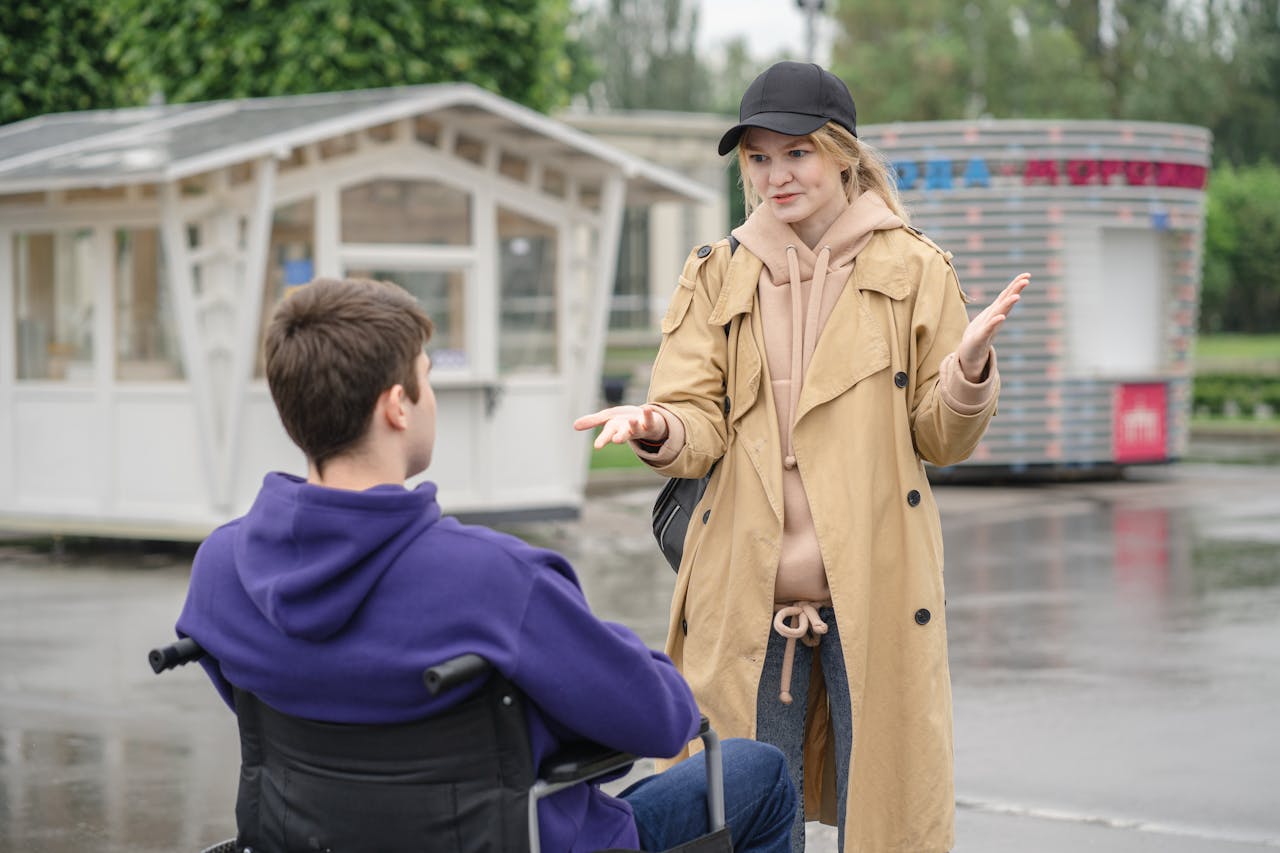10 Things You Should Never Say to a Disabled Person: How to Communicate with Respect

Talking to someone with a disability can be intimidating if you’re worried about saying the wrong thing. However, with a little understanding and sensitivity, you can build connections that are respectful and meaningful. Some phrases, even if said with good intentions, can be hurtful or dismissive. These comments often stem from misconceptions about disability or a lack of awareness. In this article, we’ll explore ten things you should never say to a disabled person and offer guidance on fostering respectful communication.
1. “You Do Not Look Disabled”

While this may seem like a compliment, it can come across as dismissive or invalidating. Disabilities are not always visible, and many people live with conditions that are not immediately apparent. Telling someone they do not look disabled can make them feel like they must justify their experience. A better approach is to listen and respect what they share about their condition without questioning its validity.
2. “It Could Be Worse”

Though meant to offer perspective, saying “It could be worse” often minimizes the challenges a person is facing. This phrase can come across as dismissive, implying their struggles are not significant enough to warrant understanding or empathy. Instead, try acknowledging their feelings by saying something like, “That sounds really tough—how can I help?”
3. “I Know How You Feel”

Even if you have faced difficulties in life, saying “I know how you feel” can diminish the unique challenges a disabled person experiences. Disabilities often come with complex emotional, physical, and societal hurdles that may be outside your personal experience. Instead of assuming you understand, focus on listening. Ask how they feel and let them share their perspective without comparison.
4. “Are You Sure You Can Do That?”

This phrase may come from a place of concern, but it often undermines the abilities of the person you’re speaking to. It assumes they are incapable, which can feel patronizing. Many people with disabilities are highly capable of determining what they can or cannot do. If you want to be supportive, ask, “How can I assist you?” rather than questioning their abilities.
5. “I Wish I Could Be as Brave as You”

This phrase frames their life as extraordinary simply because of their disability, which can feel patronizing. While you may mean to compliment their resilience, focusing on their bravery can reduce their identity to their condition. Instead, treat them as a person with talents, skills, and ambitions beyond their disability.
6. “At Least You Do Not Have to Work”

This assumption is not only incorrect but also dismissive of the barriers people with disabilities often face in the workplace. Many people with disabilities are fully capable of working, and some face challenges such as inaccessible environments or discrimination. Avoid making assumptions about someone’s work or lifestyle. Instead, show interest in their career goals or passions without focusing on their disability.
7. “Why Don’t You Just Try Harder?”

This phrase implies that the person is not making enough effort, which is both unfair and hurtful. Disabilities often involve factors beyond an individual’s control, such as physical limitations, chronic conditions, or mental health challenges. Telling someone to “just try harder” oversimplifies their experience. Acknowledge their efforts and offer support rather than assuming they are not doing enough.
8. “You Do Not Need That Wheelchair, Do You?”

Asking this kind of question can make someone feel judged for using necessary mobility aids. These devices are not about convenience; they are vital for independence and quality of life. Instead of questioning their use, show respect for their choices. Understand that they know what works best for them and their mobility.
9. “Everything Happens for a Reason”

This phrase is often meant to comfort but can feel dismissive to someone navigating the challenges of living with a disability. It implies their struggles are part of some grand plan, which may not align with how they feel. Instead, offer empathy and support by saying, “I am here if you want to talk about it,” which acknowledges their experience without diminishing it.
10. “You Must Be So Inspiring”

Labeling someone as inspiring simply because they live with a disability can be reductive. It perpetuates the idea that their everyday life is extraordinary solely due to their condition. While celebrating achievements is important, it is better to focus on their skills or accomplishments without framing them around their disability. Treat them as a person first, not as an automatic source of inspiration.
Final Thoughts

When speaking to someone with a disability, always prioritize respect and empathy. Avoid assumptions, listen attentively, and use language that reflects their humanity rather than their condition. A good rule of thumb is to ask yourself if the comment you are about to make could unintentionally belittle or stereotype the person.
By staying mindful of your words and focusing on building genuine connections, you contribute to a more inclusive world where everyone feels valued and heard. Respectful communication is not just about avoiding harmful phrases; it’s about creating spaces where understanding and kindness thrive.
Leave a Reply